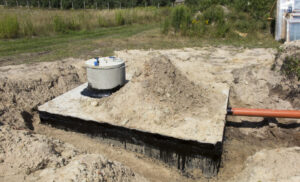Car dealerships are bustling hubs of activity, showcasing the latest vehicles, offering test drives, and managing customer interactions. Amidst the glitz and glamour, one might not immediately associate the need for a septic lift station. However, these stations play a crucial role in ensuring the smooth operation of a dealership’s waste management system, facilitating an efficient and hygienic environment for both customers and staff.
A septic lift station might seem an unlikely requirement for a car dealership, but it becomes indispensable when considering the volume of wastewater generated daily. From service bays to restrooms and washing facilities, the dealership’s activities result in substantial liquid waste that requires proper handling and disposal. This article aims to delve deeper into the reasons why a car dealership would need a septic lift station and its significance in maintaining a functional and compliant waste management system.
Understanding Septic Lift Stations
Before exploring their relevance to car dealerships, it’s crucial to grasp the basics of septic lift stations. These stations are integral components of sewage systems, particularly in areas where natural drainage by gravity isn’t feasible. They consist of pumps, pipes, and chambers designed to collect and lift wastewater to a higher elevation, allowing it to flow onwards towards treatment plants or septic tanks.
The Role of Septic Lift Stations in Car Dealerships
Managing Wastewater from Service Bays
Car dealerships often have service bays where maintenance and repair work takes place. These areas produce a substantial amount of wastewater due to activities like oil changes, vehicle cleaning, and parts washing. A septic lift station efficiently manages this waste, preventing the accumulation of harmful substances and ensuring proper disposal without risk to the environment.
Handling Showroom and Customer Facility Waste
Beyond service areas, dealerships house showrooms and customer facilities that contribute to wastewater generation. Restrooms, car wash stations, and even coffee areas produce wastewater, necessitating a comprehensive system to handle these diverse sources. A septic lift station aids in collecting and transporting this waste effectively.
Compliance with Environmental Regulations
Environmental regulations govern the disposal of liquid waste, especially in commercial settings like car dealerships. Compliance with these regulations is non-negotiable, and a malfunctioning or inadequate waste management system can lead to hefty fines and reputational damage. A septic lift station ensures adherence to these regulations by efficiently managing and transporting wastewater in a safe and environmentally friendly manner.
Preventing Backups and System Failures
Without a reliable system in place, dealerships face the risk of backups and system failures, leading to disruptions in operations and potential health hazards. A septic lift station mitigates these risks by maintaining a consistent flow of wastewater away from the premises, preventing overflows and damage to the property.
Factors Influencing the Choice of Septic Lift Stations
Several factors influence the selection and installation of a septic lift station in a car dealership:
Capacity and Volume
The size of the dealership, the number of service bays, and the volume of daily operations dictate the required capacity of the septic lift station. A thorough assessment of wastewater production is essential for choosing the appropriate system.
Technology and Maintenance
Advancements in technology offer various options for septic lift stations. Choosing a system that aligns with the dealership’s needs while considering ease of maintenance is crucial. Regular maintenance ensures the efficient functioning of the station and prevents costly repairs.
Regulatory Compliance
Local and federal regulations concerning wastewater disposal influence the design and installation of the septic lift station. Compliance with these regulations is a priority to avoid legal repercussions.
Environmental Impact
Car dealerships, like any other business, must consider the environmental impact of their operations. Opting for environmentally friendly systems and practices, including the proper management of wastewater, reflects positively on the dealership’s image and commitment to sustainability.
Conclusion
In conclusion, a septic lift station may not be the most glamorous aspect of a car dealership’s infrastructure, but its importance cannot be overstated. From managing wastewater produced in service bays to ensuring compliance with environmental regulations, these stations play a vital role in maintaining a hygienic and efficient environment. Car dealerships that prioritize the installation and upkeep of septic lift stations demonstrate their commitment to responsible waste management, contributing positively to both their operations and the surrounding environment.


